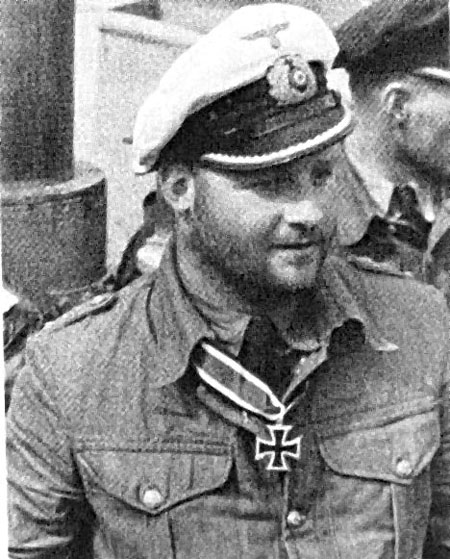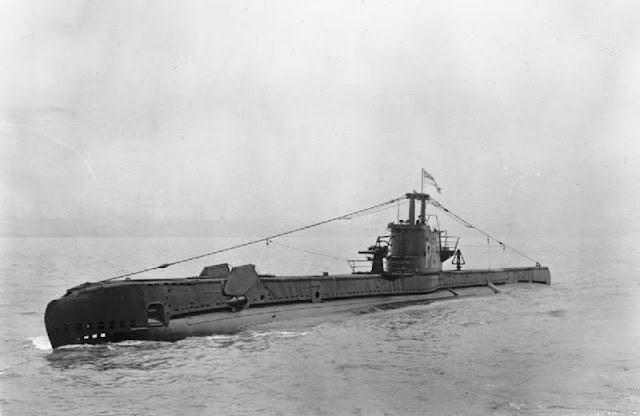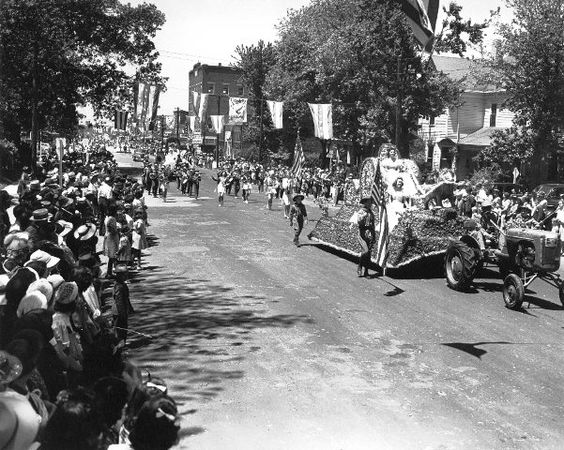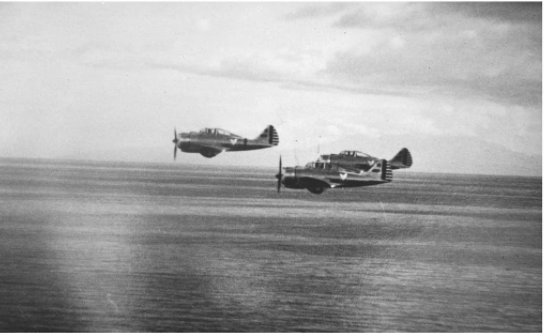Friday 9 May 1941
 |
| Damage at Friar Lane, Nottingham, this picture was taken 9 May 1941. |
Our information is that Rashid Ali and his partisans [actually Iraqi government military forces] are in desperate straits. However this may be, you are to fight hard against them... [Y]ou should exploit situation to the utmost, not hesitating to try to break into Baghdad even with quite small forces and running the same kind of risks as the Germans are accustomed to run and profit by.Churchill adds that "There can be no question of negotiation with Rashid Ali" unless he surrenders unconditionally. Furthermore, Wavell is to aid Free French General Catroux in an invasion of Syria "In face of your evident feeling of lack of resources" - a typical Churchillian dig at what he personally judges to be Wavell's lack of fighting spirit.
At Fort Rutbah, the RAF bombs the fort and loses a plane to small-arms fire. The Iraqi government sends a convoy of 40 trucks armed with machine guns to reinforce the small garrison. The British of the Arab Legion who are an advance party of Habforce continues to wait for reinforcements from the main column before attacking and withdraw to a more defensible position.
Jihad has been proclaimed by the Grand Mufti.
 |
| A Junkers Ju-52 transport being used for training exercises in preparation for Operation Mercury, the airborne assault on Crete, 9 May 1941. |
London is the main target during the night when about 500 Luftwaffe bombers attack. There are subsidiary attacks at RAF airfields including RAF Waddington, where a direct hit on an air-raid shelter kills ten people, including seven women.
Liverpool, Hull, and many other cities in the industrial north are devastated by the recent Luftwaffe raids. In Hull alone, there are an estimated 1000 dead and 40,000 homeless out of a population of 330,000. The Germans have been extremely effective at targeting the docks in their target cities recently, but the British are stepping up their jamming attempts of the crude German navigational system based on radio waves. That jamming already is having some effect, as evidenced by the "cows and chickens" remark.
Attacks continue at Hull, but few planes hit anything of importance. The Luftwaffe focuses on the port and damages 64-ton sailing barge Whitaker's No. 17, 5117-ton British freighter Dan Y Bryn, and 3067-ton British freighter Castilian. There are two deaths on the Castilian.
During the day, RAF Bomber Command attacks coastal targets. It then sends 146 bombers against Mannheim and Ludwigshafen during the night.
East African Campaign: The perimeter at Amba Alagi remains quiet as the British forces await reinforcements which are only a day away. The East African 22nd Infantry Brigade moves to the southwest around Laka Shala in Galla-Sidamo.
Winston Churchill sends Abyssinian Emperor Haile Selassie and congratulates him on being "the first [monarch deposed by the fascists] to return in triumph."
 |
| HMS Bulldog alongside U-110, 9 May 1941. |
The British recently captured German weather ship Munchen near Iceland, securing prized Kriegsmarine naval codes, and today they pull off an even greater intelligence coup. U-100 (Kptlt. Fritz-Julius Lemp), one of the top U-boat commanders (he sank the Athenia on 3 September 1939), is operating off of Cape Farewell, Greenland and shadowing Convoy OB-318 as part of Wolf Pack West. Lemp attacks the convoy, and all goes well at first as he sinks to ships:
- 4976-ton British freighter Esmond (all survive)
- 2609-ton British freighter Bengore Head (40 survivors, one dead).
Noticing the U-boat failing to sink, a boarding party from the Bulldog, led by 20-year-old Sub-Lt. David Balme, quickly rows over to the U-boat despite the ever-present fear that scuttling charges could go off at any moment. The Royal Navy sailors grab the extremely valuable Enigma coding machine along with its codebooks, rotor settings, and charts.
After everything of value has been removed from the U-boat (including the submarine's chronometer), the British sink it (during a storm, so perhaps not intentionally) to maintain the secret of its capture. It is an astonishingly lucky find for the British Ultra operation at Bletchley Park, which has been in need of the equipment and information. Of immediate benefit, the documents aboard enable the British to break the German Reservehandverfahren code, a reserve German hand cipher. The capture also becomes is a key step on the road to British scientist Alan Turing's first computer, Colossus. The capture of U-110 is so significant that it later is given the code name Operation Primrose. Winston Churchill will not even tell President Roosevelt about it until January 1942.
 |
| Fritz-Julius Lemp, Captain of U-110, KIA 9 May 1941. |
U-201 (Kptlt. Adalbert Schnee), on its first patrol out of Kiel, also attacks convoy OB-318 as part of Wolf Pack West a couple of hours after the capture of U-110. Schnee hits two ships:
- 5969-ton Empire Cloud (badly damaged)
- 5802-ton Gregalia (sunk)
Italian submarine Enrico Tazzoli torpedoes and sinks 8817-ton Norwegian tanker Alfred Olsen several hundred miles off Freetown. Everyone survives.
Off Freetown, Royal Navy Armed Merchant Cruiser HMS Cilicia captures 4564-ton Vichy French transport SS Criton. The Criton is carrying shells for the French base at Dakar. The British send the ship to Freetown, with a skeleton party of armed guards supervising the Vichy French crew.
U-107 (KrvKpt. Günter Hessler), on its second patrol and operating off of Freetown, Sierra Leone, is in the midst of a wildly successful patrol during which it sinks or damages a phenomenal 14 ships during more than two months at sea. To stay at sea that long, U-boats need regular supply from "Milch" ships. Today, U-107 is supplied with food and 14 torpedoes when it hooks up with the Egerland, which is disguised as an American freighter.
The Luftwaffe bombs and sinks 3010-ton Royal Navy mine destruction ship HMS Queenworth in Outer Dowsing Channel. Everybody survives.
The Luftwaffe bombs and sinks 97-ton British trawler Tankerton Towers off St Govan's Light Vessel in the mouth of Bristol Channel. All eight aboard survive.
The Luftwaffe bombs and damages 1737-ton British freighter Ostrevent near Helwick Light Vessel in the Humber.
The Luftwaffe damages a mine destruction ship, HMS Corfield, with near misses in the Humber.
The Luftwaffe damages 4950-ton British freighter Fishpool at Barrow.
The Luftwaffe bombs and damages British tankers San Roberto (5890 tons) and British Statesmen (6991 tons) just over twenty miles northeast of Spurn Point, East Riding of Yorkshire. The tankers are towed to Immingham.
Spanish fishing trawler Luis Puebla hits a mine and sinks in the Bay of Biscay north of Gijón, Asturias. There are three survivors and nine deaths.
US aircraft carrier USS Ranger and heavy cruiser Vincennes, with a destroyer escort, conduct a neutrality patrol in the Atlantic.
Another Italian submarine that has escaped from Eritrea, the Ferraris, arrives at Bordeaux after a long journey.
Convoy SC 31 departs from Halifax, bound for Liverpool.
Royal Navy destroyer HMS Brocklesby, minesweeper Polruan (Lt. Commander John S. Landers), and Anti-Submarine Warfare trawler Tarantella (Lt. Robert A. Balfour) are commissioned.
Canadian minesweeper HMCS Ungava and corvette Matapedia (Lt. Ronald J. Herman) are commissioned.
 |
| HMS Nigella, which picked up 45 survivors from Empire Cloud northeast of Cape Farewell. The Empire Cloud had been torpedoed by U-201. |
One ship, however, fails to make it. British 9200-ton freighter Empire Song hits a mine during the night which sets off its ammunition cargo, causing it to explode. The Empire Song and its 57 tanks, 10 aircraft and several trucks quickly sink. There are 18 deaths and 130 survivors.
In addition, freighter New Zealand Star hits a mine but manages to make it to Malta.
At Tobruk, General Rommel's men intercept a British wireless communication that leads them to suspect that a major British offensive may be in the offing. Rommel orders defenses along the perimeter of Tobruk strengthened and orders Kampfgruppe von Herff to initiate offensive patrols.
The Royal Navy's nightly shuttle to Tobruk continues as Australian destroyer HMAS Vendetta evacuates wounded and takes them to Alexandria.
At Malta, Governor Dobbie draws up a plan to replace soldiers with female auxiliaries. The jobs will include service as cooks, dining hall waitresses, messengers, and similar functions. Among other things, this involves an increase in pay for the women (subject to Whitehall approval).
Convoy AS 30 departs from Suda Bay, Crete under heavy escort, bound for Alexandria.
 |
| An Enigma machine (lower left) aboard U-124 in March, 1941 (Dietrich, Federal Archives). |
Anglo/Free French Relations: There is a muddle within the British hierarchy about how to deal with Vichy Syria, which is in the formative stages of being used to transfer German planes and troops to Iraq. The British have been allowing the Vichy government in Syria wide latitude and even been paying some Vichy sailors interned at Alexandria. This passive attitude has extended to permitting regular passages of French transport SS Providence between Marseille and Beirut - even as other Vichy ships have been captured on the high seas. In effect, the British Middle East Command has been conducting its own independent foreign relations with the Vichy forces in Syria even though there is a growing sense that the French will soon be allowing the Germans transit rights to Iraq.
First, Major-General Edward Spears, who is on the staff of Middle East Commander General Archibald Wavell, is a fervent Francophile and has been acting as a liaison to General De Gaulle, cables De Gaulle in Brazzaville that there is no need for him to visit Cairo to plan an attack on Syria. "There would, in fact, be some disadvantage to your doing so," he writes, which presumably means that De Gaulle's presence would antagonize the Vichy authorities in Syria.
However, in the evening Winston Churchill himself cables De Gaulle. Among other things, Churchill casually mentions that De Gaulle should go to Cairo. Surprised, De Gaulle quickly replies (in English, which is very rare for him) "I shall go to Cairo soon." The entire incident is very revealing of the general confusion that infests relations between Great Britain and France during this period. Another outcome of this incident is that relations between Spears and De Gaulle deteriorate, to Spears' personal regret.
 |
| Junkers Ju-52 transports standing in wait for Operation Mercury, the airborne assault on Crete, 9 May 1941. |
I gather that the whole Cabinet would come into the war tomorrow if Roosevelt would say the word. But he hangs back, preferring an "incident" (e.g., as a result of the Atlantic patrol) to a formal declaration.Menzies notes that Dean Atcheson is "friendly but confused. Famous Harry Hopkins a great disappointment - a sort of gangling yokel."
Soviet/Yugoslav Relations: The Soviet Union withdraws diplomatic recognition of the Yugoslav government-in-exile. Led by King Peter, the exiles have been camping out in Jerusalem under British protection, along with remaining remnants of the Yugoslav Army, Navy and Air Force that managed to leave the country. Some army elements do remain in Yugoslavia, and they are in the process of regrouping as partisans and forming the primarily Serbian "Yugoslav Army of the Fatherland" (Jugoslovenska vojska u otadžbini, or JVUO, or Četniks) under Royalist General Draža Mihailović. However, communist partisans in the region also are stirring, and the Soviets may prefer to back them. The official reason for withdrawing recognition is that the German government now controls the country.
Soviet/Belgian Relations: The Soviets also withdraw recognition of the exiled government of Belgium.
Soviet Norwegian Relations: The Soviets also withdraw recognition of the Norwegian government.
 |
| Fort Rutbah, Iraq, 9 May 1941. This photograph was taken from an RAF Blenheim bomber that attacked the fortress. |
British Military: The Air Ministry announces the existence of "a large number of paratroops who have completed their training and are ready for action."
Philippines: Now that his staff has arrived on USAT Washington, Brigadier General Clagett, the newly arrived commander of the Philippines Department Air Corps, begins organizing his command. Ernest Hemingway, on his way back to the States from his six-week stay in Asia, is in Manila and parties with the enlisted men, at least one of whom he knows personally through a mutual female acquaintance. Hemingway, who claims never to have gotten anywhere near the war, makes eerily insightful comments about the situation in China. These include views that the Nationalists and Communists soon will be fighting each other in addition to the Japanese, and that Japan might well be at war with the United States soon.
China: At the Battle of South Shanxi, the Japanese North China Front Army continues to attack the 9th Army of the Chinese 1st War Area at Fengmenkou and Lungwanwo. The Japanese also capture Wangyuan and attack Tungfeng. In addition, the Japanese Imperial Air Force raids the Nationalist capital of Chungking.
American Homefront: Singer Billie Holiday records "God Bless the Child" at the Okey Records studio on Seventh Avenue in New York City. It is the first recording of the jazz song written by Holiday and Arthur Herzog, Jr. "God Bless the Child" will not be released until 1942. The song will become one of Holiday's signature songs and a major event in her eventual autobiography "Lady Sings the Blues."
Future History: Operation Primrose, the capture of U-110, will become the starting point for the screenplay of "U-571" (2000).
A memorial to the Sanski Most Revolt will be set up at Šušnjar in 1971 and designated a national monument of Bosnia and Herzegovina in 2003.
May 1941
May 1, 1941: British Hold Tobruk
May 2, 1941: Anglo-Iraq War
May 3, 1941: Liverpool Hammered
May 4, 1941: Hitler Victory Speech
May 5, 1941: Patriots Day
May 6, 1941: Stalin In Command
May 7, 1941: May Blitz
May 8, 1941: Pinguin Sunk
May 9, 1941: U-110 Captured
May 10, 1941: Hess Flies Into History
May 11, 1941: The Hess Peace Plan
May 12, 1941: Tiger Arrives Safely
May 13, 1941: Keitel's Illegal Order
May 14, 1941: Holocaust in Paris
May 15, 1941: Operation Brevity
May 16, 1941: Blitz Ends
May 17, 1941: Habbaniya Relieved
May 18, 1941: Croatia Partitioned
May 19, 1941: Bismarck at Sea
May 20, 1941: Invasion of Crete
May 21, 1941: Robin Moore Sinking
May 22, 1941: Royal Navy Destruction Off Crete
May 23, 1941: Crete Must Be Won
May 24, 1941: Bismarck Sinks Hood
May 25, 1941: Lütjens' Brilliant Maneuver
May 26, 1941: Bismarck Stopped
May 27, 1941: Bismarck Sunk
May 28, 1941: Crete Lost
May 29, 1941: Royal Navy Mauled Off Crete
May 30, 1941: Sorge Warns, Stalin Ignores
May 31, 1941: British Take Baghdad
2020













